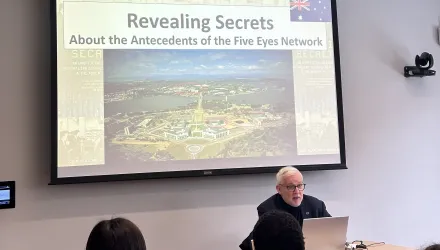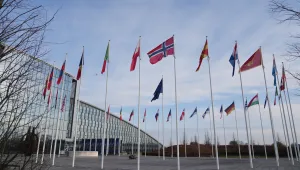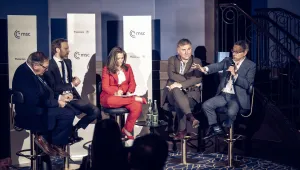Bound to Fail: The Rise and Fall of the Liberal International Order
John J. Mearsheimer
The liberal international order led by the United States was destined to collapse. Liberal excesses provoked a powerful nationalist backlash. In the emerging multipolar world, a realist order will manage the world economy, and Chinese-led and U.S.-led bounded orders will help the two great powers prosecute their security competition.
A Flawed Framework: Why the Liberal International Order Concept Is Misguided
Charles L. Glaser
Maintaining the liberal international order is central in the debate over U.S. security and foreign policy. Much of what the liberal order purports to explain, however, can be explained by other theories. Analyzing issues through a grand-strategic lens would provide broader options for achieving U.S. interests.
Proliferation and the Logic of the Nuclear Market
Eliza Gheorghe
What explains the scale and speed of nuclear proliferation? One key factor is the level of competition among suppliers in the market for nuclear materials and technologies. When suppliers form a cartel, fewer countries can acquire what they need for nuclear weapons program. If great power competition intensifies, suppliers will find it harder to cooperate and nuclear proliferation could accelerate.
Buying Allies: Payment Practices in Multilateral Military Coalition-Building
Marina E. Henke
Many states have been paid to join multilateral military coalitions. These payments are largely covered by “pivotal states”—those that care the most about an operation’s success—and take the form of deployment subsidies and political side deals to attract critical contributors to the mission.
Power and Profit at Sea: The Rise of the West in the Making of the International System
J.C. Sharman
Beginning in the 1400s, Europeans built the global international system by using naval force to achieve commercial success. Europeans had a technical capacity and a cultural inclination to control the seas that Eastern empires lacked.
"International Security Journal Highlights." Belfer Center Newsletter. Belfer Center for Science and International Affairs, Harvard Kennedy School (Summer 2019).



